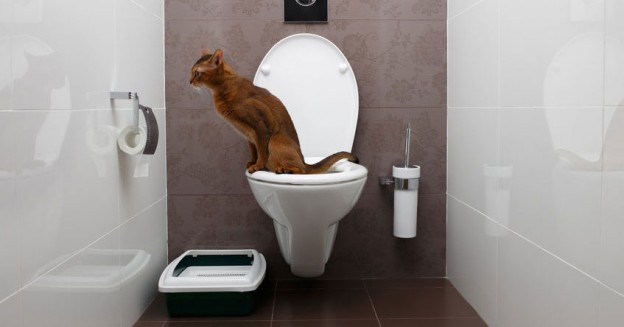Dangers of Disposing Cat Poop in Your Toilet - Precautionary Measures
Dangers of Disposing Cat Poop in Your Toilet - Precautionary Measures
Blog Article
We've uncovered the article involving Can You Flush Cat Poo or Litter Down the Toilet? down the page on the net and accepted it made perfect sense to discuss it with you over here.

Intro
As cat owners, it's vital to be mindful of exactly how we get rid of our feline good friends' waste. While it may appear practical to purge pet cat poop down the toilet, this method can have destructive consequences for both the atmosphere and human health.
Ecological Impact
Flushing cat poop introduces unsafe virus and bloodsuckers into the water, positioning a substantial threat to aquatic ecological communities. These contaminants can negatively impact aquatic life and concession water high quality.
Wellness Risks
In addition to ecological issues, flushing feline waste can also present wellness threats to human beings. Cat feces may include Toxoplasma gondii, a bloodsucker that can cause toxoplasmosis-- a potentially serious ailment, particularly for expectant ladies and individuals with weakened body immune systems.
Alternatives to Flushing
Luckily, there are safer and more accountable ways to get rid of pet cat poop. Think about the following options:
1. Scoop and Dispose in Trash
One of the most usual technique of disposing of feline poop is to scoop it right into an eco-friendly bag and throw it in the garbage. Be sure to utilize a devoted clutter scoop and throw away the waste quickly.
2. Usage Biodegradable Litter
Choose eco-friendly feline litter made from materials such as corn or wheat. These trashes are environmentally friendly and can be safely gotten rid of in the garbage.
3. Bury in the Yard
If you have a backyard, consider burying pet cat waste in an assigned location away from veggie gardens and water sources. Make certain to dig deep enough to stop contamination of groundwater.
4. Install a Pet Waste Disposal System
Buy an animal waste disposal system specifically designed for pet cat waste. These systems utilize enzymes to break down the waste, decreasing odor and ecological influence.
Final thought
Responsible animal ownership expands past offering food and sanctuary-- it likewise entails correct waste management. By refraining from flushing cat poop down the commode and selecting alternative disposal approaches, we can minimize our ecological impact and protect human health and wellness.
Why You Should Never Flush Cat Poop Down the Toilet
A rose by any other name might smell as sweet, but not all poop is created equal. Toilets, and our sewage systems, are designed for human excrement, not animal waste. It might seem like it couldn’t hurt to toss cat feces into the loo, but it’s not a good idea to flush cat poop in the toilet.
First and foremost, assuming your cat uses a litter box, any waste is going to have litter on it. And even the smallest amount of litter can wreak havoc on plumbing.
Over time, small amounts build up, filling up your septic system. Most litter sold today is clumping; it is made from a type of clay that hardens when it gets wet. Ever tried to scrape old clumps from the bottom of a litter box? You know just how cement-hard it can get!
Now imagine just a small clump of that stuck in your pipes. A simple de-clogger like Drano isn’t going to cut it. And that means it’s going to cost you big time to fix it.
Parasitic Contamination
Believe it or not, your healthy kitty may be harboring a nasty parasite. Only cats excrete Toxoplasma in their feces. Yet it rarely causes serious health issues in the cats that are infected. Most people will be fine too if infected. Only pregnant women and people with compromised immune systems are at risk. (If you’ve ever heard how women who are expecting are excused from litter cleaning duty, Toxoplasma is why.)
But other animals may have a problem if infected with the parasite. And human water treatment systems aren’t designed to handle it. As a result, the systems don’t remove the parasite before discharging wastewater into local waterways. Fish, shellfish, and other marine life — otters in particular — are susceptible to toxoplasma. If exposed, most will end up with brain damage and many will die.
Depending on the species of fish, they may end up on someone’s fish hook and, ultimately on someone’s dinner plate. If that someone has a chronic illness, they’re at risk.
Skip the Toilet Training
We know there are folks out there who like to toilet train their cats. And we give them props, it takes a lot of work. But thanks to the toxoplasma, it’s not a good idea.

I am just very focused on Don’t flush cat feces down the toilet and I hope you appreciated the page. Sharing is caring. Who knows, you may very well be doing someone a favor. Thanks for your time. Don't hesitate to check up our site back soon.
Book Today! Report this page